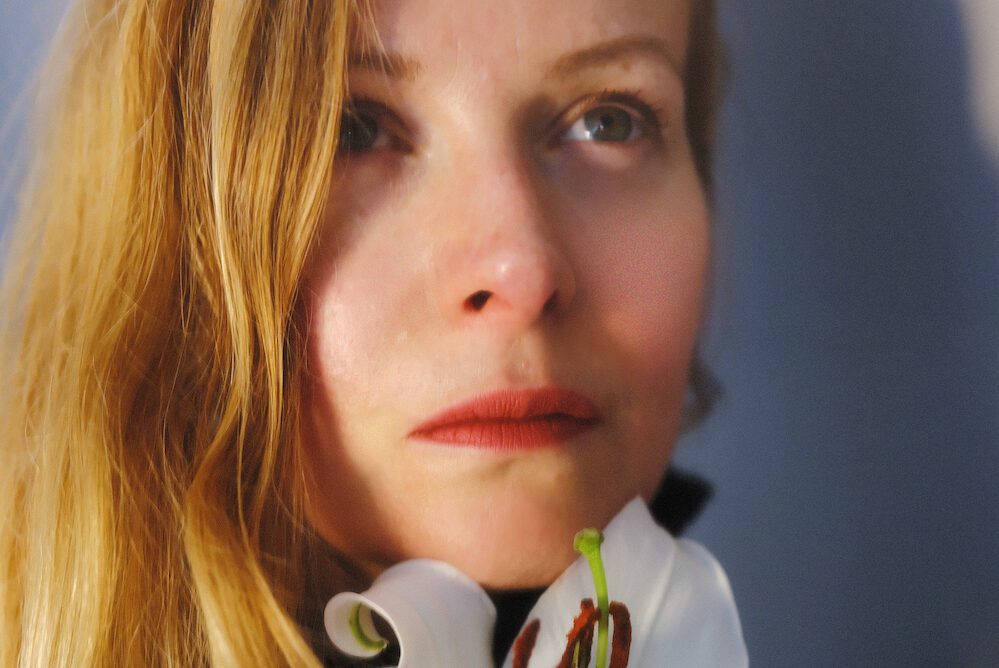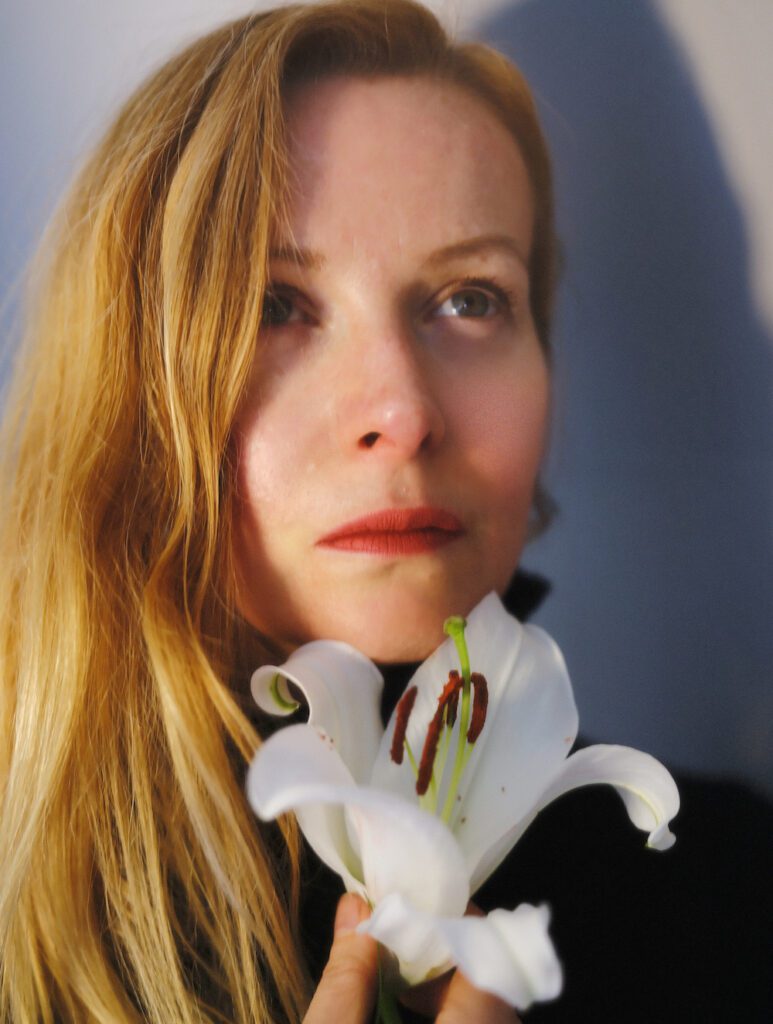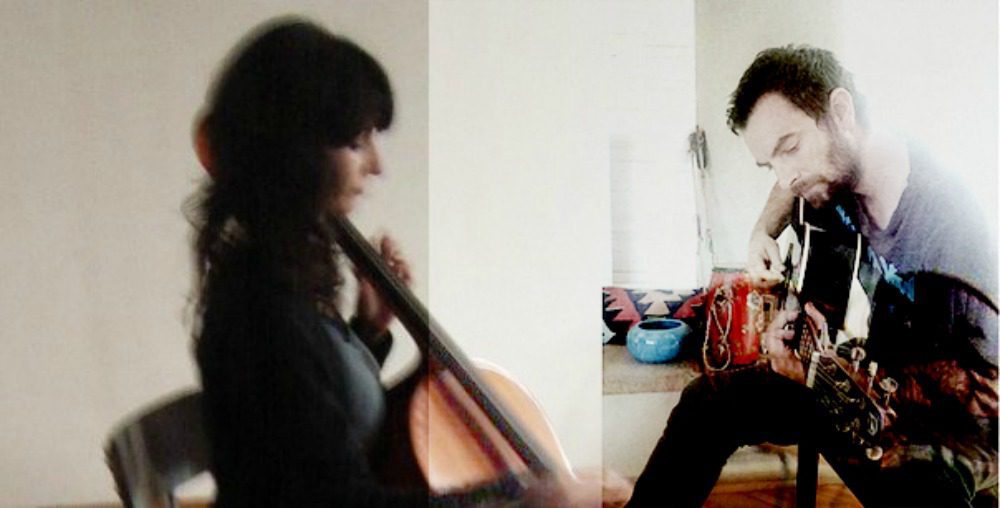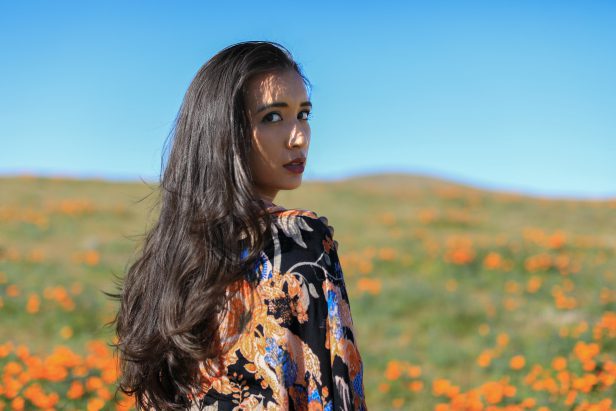

Some ideas are hard to forget. At least, that’s the case for Dot Allison. The Scottish singer began working steadily on her forthcoming album, Heart-Shaped Scars, sometime around 2017, with some songs, like “One Love,” (premiering today via Audiofemme), taking shape in 2020.
However, the seeds of the album, set for release on July 30, go back more than a decade before that. “Ghost Orchid” started out as a poem called “Church of Snow,” written circa 2004. “Forever’s Not Much Time” was a title she had been kicking around since before 2005. In the interim, she released the albums Exaltation of Larks and Afterglow. She collaborated with artists like Paul Weller, Pete Doherty, Darren Emerson and Slam and sang backup for Scott Walker and Sun O))).
Allison also took off time to raise a family. “I kept writing, but I just wasn’t making it into anything,” she explains from her home in Edinburgh. During this period, she says, she would write “one day here, one day there,” gradually building up a body of new work. “The ideas kept coming. I was banking ideas because I was doing these little bits of writing and then the kids just got a bit bigger,” she says. At around the same time, Allison had been introduced to musicians in Scotland’s folk scene, which became crucial to the development of Heart-Shaped Scars.
Since the early 1990s, Allison has crafted an eclectic career. She first came to attention as the singer for One Dove, whose lone album, Morning Dove White, was released in 1993 and spawned the single “White Love.” Andrew Weatherall’s “Guitar Paradise Mix” of the song remains an impeccably cool slice of ethereal house.
Allison’s sophomore solo album, We Are Science, which was released in 2002, is one of the essential early ‘00s electronic pop albums, and Felix da Housecat’s remix of her song “Substance” was one of the big club hits of that era. But, she’s also made a lot of music outside the electronic realm, and for Heart-Shaped Scars, Allison delves heavily into folk.
“I suppose I’ve got really eclectic tastes in music and just butterfly around listening to different things,” says Allison. “That’s reflected in my work. It’s not like I started thinking that I was going to go to electronic to this and this. There’s no grand plan.”
Allison connected with folk singer Amy Bowman and the two collaborated on “The Haunted,” the first song she made specifically for this album. It was based on a poem that Allison had previously written and she worked on the chords while Bowman handled more of the melody. “I’m so happy with what we co-wrote together,” she says.
Through Bowman, she met singer Zoë Bestel and they joined forces for “Can You Hear Nature Sing?” Allison, who co-produced the album with Fiona Cruikshank, also worked with composer Hannah Peel, who provided string arrangements. The resulting album bears a tender, yet, eerie sound in the vein of Paul Giovanni and Magnet’s music for the 1973 film The Wicker Man.
Back when she lived in London, Allison had a CD copy of The Wicker Man soundtrack that she kept in the booth of her studio. “In my opinion, it’s just really great songwriting in that visceral imagery, and melodically beautiful, like ‘Willow’s Song,’” she says. “It’s so gorgeous and pulls your heart strings.”
In the late ‘00s, Allison performed “Gently Johnny” from the film on stage at Glastonbury with The Memory Band. “It’s been in my sphere for a while, that film or that soundtrack,” she says. Of “Willow’s Song,” which is associated with a quite memorable scene in the film, she adds, “I just think it’s such an important song, really. I just love that song. “
Allison had already done quite a bit of work on the album before the COVID-19 pandemic hit, but the 2020 lockdown resulted in some reshaping of the album. She wrote “Goodbye,” “Long Exposure,” “One Love” and “Forever’s Not Much Time” during this period. The lockdown also prompted her to learn to play and write with a ukulele. “I just thought, I’ll pick up this ukulele because it’s a lovely ukulele and I just can’t put off trying it,” she says. Allison normally writes on piano, which she learned how to play as a child, and guitar. Because she didn’t know how to play the ukulele, Allison had to figure the songs by ear.
It was a revealing experience. “I may have been slightly hampered by knowing the chords on the other instruments,” she says. Allison adds that the songs written with the ukulele are “possibly the most musical songs” that she’s written. It prompted her to wonder, “Why didn’t I pick up the ukulele before?”
Lockdown, Allison says, “transformed” the album. “It ended up benefiting the record, even though it’s not a positive thing,” she explains, adding that the stay-at-home period forced her to sit down and try creative approaches that she hadn’t previously used.
With Heart-Shaped Scars, Allison challenged herself, while also taking listeners into an aural world they might not expect from her. “I do think that I quite like trying to cut a new path for myself,” she says, “Hopefully, that’s embraced.”
Follow Dot Allison on Instagram and Twitter for ongoing updates.




